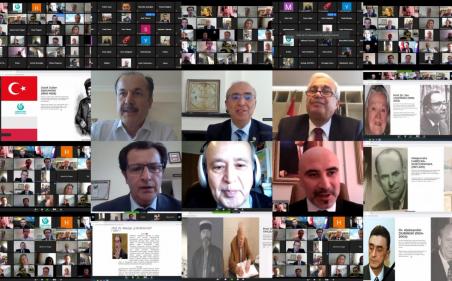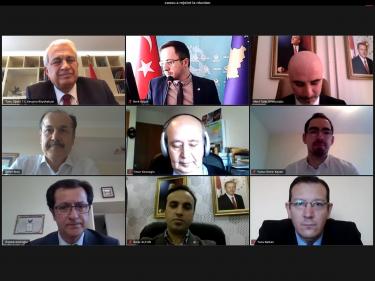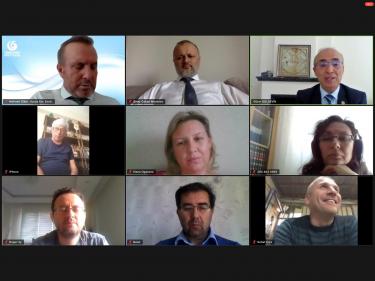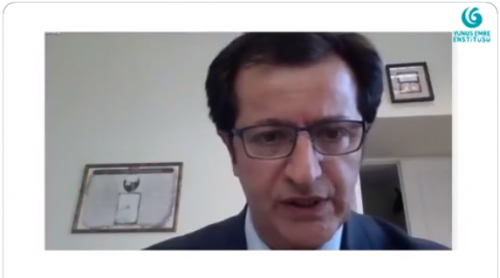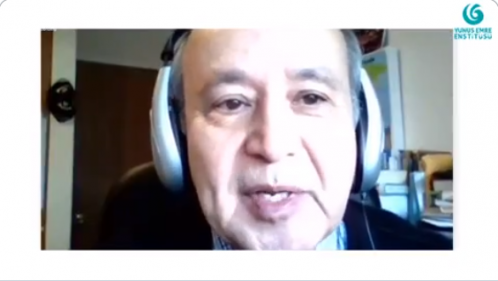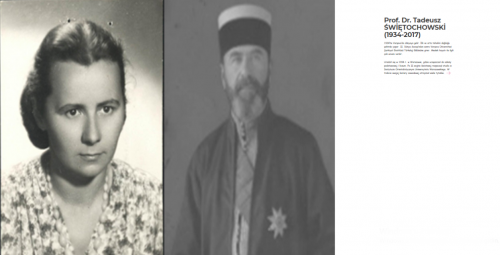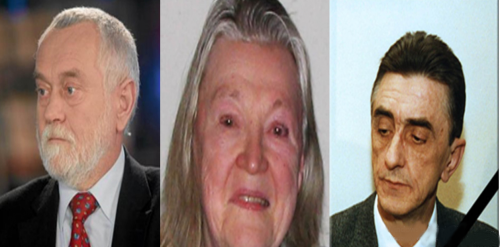Exhibition on Polish Turkologists Unveiled
A digital exhibition has been launched about the Polish academics who work and worked in the field of Turkology.
In the opening ceremony of the exhibition, organized by Yunus Emre Institute's Warsaw branch and live broadcast from the Institute's social media accounts, on April 16, Ambassador of the Republic of Turkey to Warsaw Tunç Üğdül, Turkish Language Society President Prof. Dr. Gürer Gülsevin, Yunus Emre Institute President Prof. Dr. Şeref Ateş, Michigan University Faculty Member Prof. Dr. Timur Kocaoğlu and Yunus Emre Institute's Warsaw Branch Director Prof. Dr. Öztürk Emiroğlu delivered keynote speeches.
During the event attended by many guests, information was given on the Turkology activities in Poland, biographies of 35 Turkologists and their works.
The first floor went to Institute President Şeref Ateş, who greeted the participants and indicated that the Institute is working to promote Turkish language as a language of science around the world and facilitate the teaching of Turkish language. Ateş pointed out that culture is the most fundamental source of language and cultures may produce different reactions to the same events. "I greet our friends who attend our program, and who work to promote Turkish language, and who teach, learn or at least use Turkish language," Ateş said at the end of his speech.
Then, the floor went to Turkish Language Society President Prof. Dr. Gürer Gülsevin, who explained that foreign scientists and academics conduct studies on Turkish language because it is the language of communities who lived in Siberia and Central Asia and migrated to Mesopotamia, the Caucasus, Asia Minor and even Central Asia, where they got acquainted with new neighbors and interacted with many languages and cultures.
Noting that Yunus Emre Institute should be given credit for its Turkology efforts, Gülsevin stated the Institute has been exerting great efforts to teach Turkish all around the globe.
Ambassador of the Republic of Turkey to Warsaw Tunç Üğdül indicated that the bilateral ties between Turkey and Poland are very old, and the interest in Turkology studies in Poland is very high. "From the 15th century to the late 18th century, when Poland disintegrated, an uninterrupted tradition of oriental and Turkology studies can be seen. In Poland, there were eminent orientalists and Turkologists who made significant contributions to the relations between the states and the academic studies. When Poland was re-established in 1918, many Turkology chairs were instituted one after another, ensuring the continuation of this culture," he said.
Üğdül noted that the event is significant not only in term of the Institute's promoting Turkey abroad, but also as regards the promotion of other countries in Turkey, adding that he believes that such bilateral promotions are important for improving our ties with other countries in different respects.
In his speech, Yunus Emre Institute's Warsaw Branch Director Öztürk Emiroğlu drew attention to the fact that Turkology studies in Poland have strong ties with Lithuania, Russia, Germany, Austria, Hungary, Ukraine and Turkey. He also gave information about the historical process of Turkology studies in Poland and the Turkologists covered in the exhibition.
Finally, Michigan University Faculty Member Timur Kocaoğlu briefed the participants about Karaim and recited a poem he wrote in Karaim.
To have access to the digital exhibition, visit http://polscyturkolodzy.tk/index.html.

